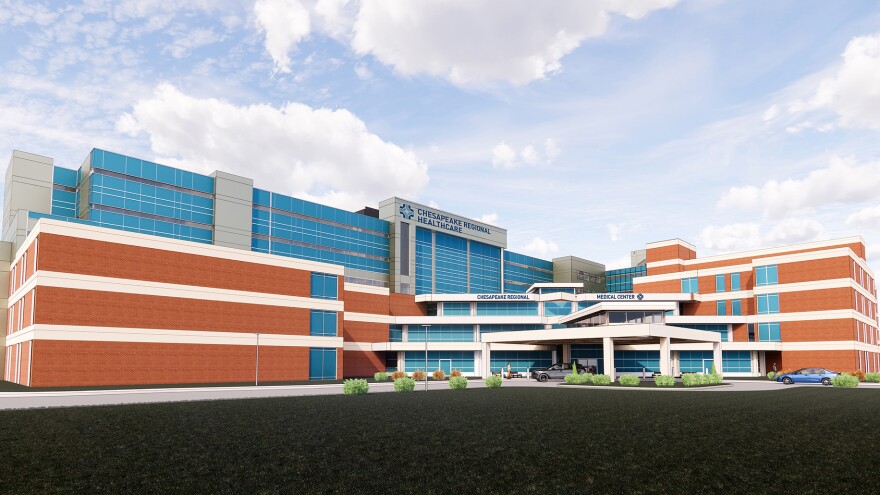The Chesapeake Regional Medical Center has wanted to start performing open heart surgeries for at least half a decade.
The hospital sees a rising need for them in the community, said President and CEO Reese Jackson.
Officials also want the hospital to be able to see cardiac patients from the time they enter the facility on Battlefield Boulevard to the time they can go home, he said.
They currently provide most cardiac services but have to transfer some heart patients elsewhere – such as Sentara – when surgeries are required.
To begin conducting open heart surgeries, however, the hospital system has to get what’s called a certificate of public need. It’s a convoluted process Virginia uses to regulate health care operations.
Chesapeake Regional’s previous attempts failed. But now they’ve got another chance, after fighting the rejection all the way to the Virginia Supreme Court.
The hospital system applied once again last week with the Virginia Department of Health.
“This is a service this community needs. It’s a service the region needs,” Jackson said. “We’re hell-bent to make sure it happens, and ultimately we’ll prevail. We’re never giving up.”
The certificate of public need system was created in 1973 because of a federal mandate that health care providers prove a community needs a facility before opening one. The mandate was repealed in 1986 but the program in the Commonwealth persists, according to the Medical Society of Virginia.
Chesapeake Regional first applied to launch an open heart surgery program in 2017. Staff with the health department recommended approval as long as the hospital agreed to do a certain amount of charity care, according to court documents.
Sentara Healthcare soon petitioned to be involved in the decision. The hospital system disputed some of the medical numbers on which Chesapeake Regional’s application was based and argued that the project didn’t meet the standards for community need.
In 2018, then-Health Commissioner Dr. Norman Oliver agreed and rejected the heart surgery application, stating in part that it duplicated existing services in the region and did not improve geographic or financial access for residents.
Chesapeake Regional sued Sentara and appealed the state’s decision in court, where it made its way to the Virginia Supreme Court.
In May, a justice sided with the Chesapeake system, ruling that the state had erred in how it calculated public need.
This time around, that decision should clarify what the state must weigh in their deliberations, Jackson said. Chesapeake Regional has also codified in law its ability to include North Carolina residents – who make up about 15% of its overall patient population – in the numbers.
In the meantime, Sentara agreed to drop its opposition to the heart program during a standoff over unrelated legislation at the General Assembly in 2019, the Daily Press reported at the time.
Sentara spokesperson Dale Gauding said in an email this week that the health system is not opposing the current application by Chesapeake Regional, "but we reserve the right to correct inaccuracies presented to the commissioner and staff about our program."
Gauding said Sentara did not oppose Chesapeake's second attempt for a certificate of public need, either, which came in 2019.
Jackson, the Chesapeake CEO, said this week he doesn’t think open heart surgery in Chesapeake would harm competitors.
“We think that there’s reason to believe that a little bit of competition would be healthy,” he said.
The Chesapeake City Council recently voted to support the effort – a show of community support Jackson said they needed for the regulatory process.
Construction for new cardiac areas is already underway. If the hospital’s latest bid is rejected, Jackson said they’ll use the spaces for different aspects before eventually trying agin.
The hospital’s already caring for cardiac patients, he said. Surgery “is just that missing piece. It’s the critical missing service that we don’t have.”
The heart program is one of several massive efforts the hospital’s undertaking for a total of about $150 million, including a new critical care tower and increasing the size of postpartum rooms, he said.



